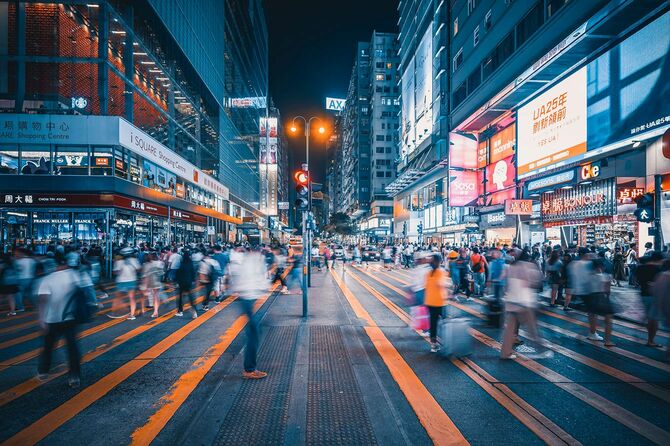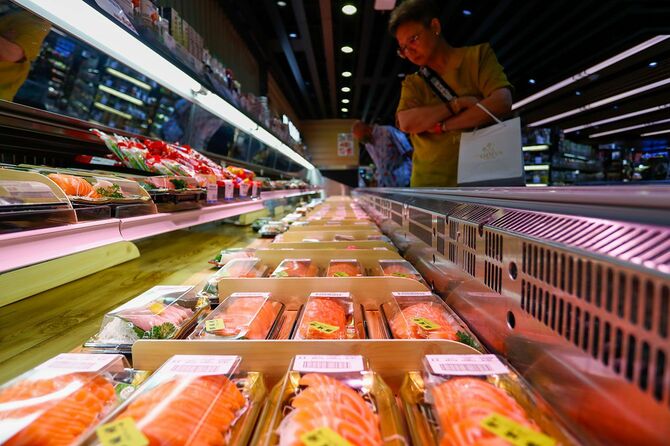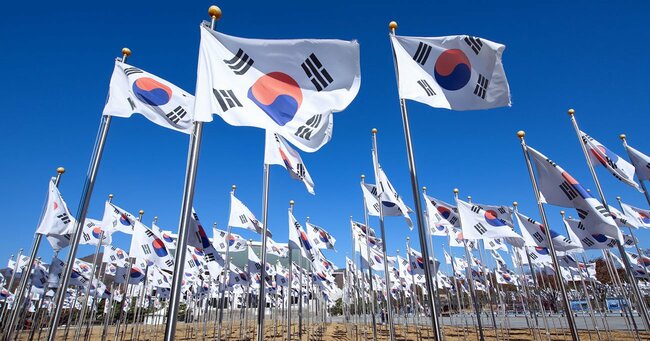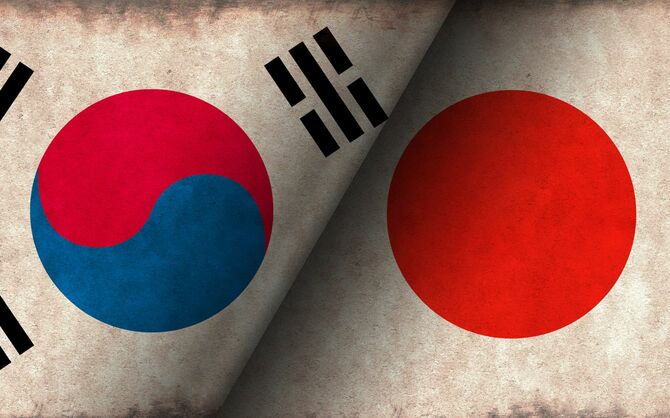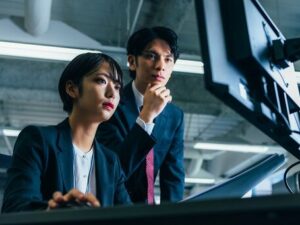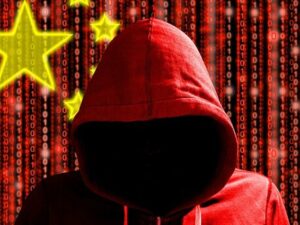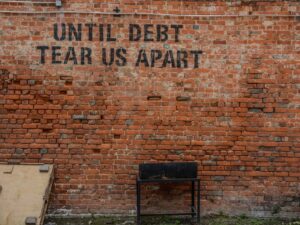PRESIDENT Online
-Aoba Yamato
Yamato Aoba
Chinese Government Fiercely Opposes Release of Treated Water
On August 24, Tokyo Electric Power Company (TEPCO) began discharging treated water from the Fukushima Daiichi Nuclear Power Plant into the ocean. 7,800 tons of treated water was discharged for the first time, which was completed on August 11.
In response to the ocean discharge, the Chinese government imposed a total ban on Japanese marine products, and the Hong Kong government also imposed an embargo on marine products from Fukushima and 10 other prefectures. This has had a widespread impact, with a string of harassing phone calls to Japan and the cancellation of tours to Japan.
Some overseas have pointed out that the Chinese response lacks scientific rationality. The BBC reported that the Chinese side had “retaliated” against the Japanese. The article pointed out that scientists have confirmed the safety of the treated water and that the IAEA (International Atomic Energy Agency) has approved the plan. The article then reported that despite these considerations for safety standards, the Chinese side unilaterally opposed Japan’s response, calling it “extremely self-serving and irresponsible.
Contrary to the Chinese government’s reaction, however, many people in Hong Kong seem to want to continue to enjoy Japanese food. Japanese restaurants in the city center continue to be busy, indicating a relatively calm response regarding the impact on food.
Long lines at Japanese restaurants in Hong Kong
In the Central district of central Hong Kong, long lines continue to form at high-end sushi restaurants and Japanese restaurants at lunchtime, even after the release of treated water.
According to an article published by CNN on August 28, four days after the discharge began, Fumi, a popular restaurant with over 100 seats, had to change its food source to a country other than Japan due to import restrictions imposed by the Hong Kong government. However, it seems that locals who visit the restaurant do not pay much attention to the origin of the ingredients in the first place.
Only a small percentage of people ask where the food comes from,” a store manager told CNN. They come here not just for the food, but for the experience of eating out and the great hospitality.
In the same Central District shopping mall, sushi chains continue to draw customers. A woman in her 30s who was having lunch said that after learning about the news reports, locals are still seeking out their favorite Japanese food.
If there were cases of illness, people might pay more attention to the radiation levels in their food,” she said. But that’s not happening right now,” she said, “so I think we will continue to eat Japanese food as if nothing happened.
Local Independent Media, “Why the Need for an Embargo?”
Hong Kong Free Press, an independent news media outlet, published an article on September 4, some 10 days after the release of treated water. It reported that even after the announcement of the embargo, “many Hong Kong people seem unconcerned, and some are even questioning whether the ban was necessary.
However, some Japanese restaurants did see some impact on the number of customers. At one restaurant, there was a rush demand before the release, but the number of customers dropped by 20-30% afterward.
On the other hand, there are those who do not mind the release of treated water. They believe that the water in the South China Sea, which Hong Kong faces, is not very safe to begin with.
A woman in her 30s who works as a secretary told the newspaper, “In the Greater Bay Area (including Hong Kong, Macau, and Guangdong Province), [local nuclear power plants] are probably discharging as well. She, who was interviewed while loading a shopping cart full of sushi at a Japanese supermarket, does not seem to view the safety of her work as being any different because of the release from Japan.
Some see the embargo, which is limited to 10 prefectures, as a posture by the Hong Kong government. A restaurant owner in Hong Kong told the newspaper that the embargo is “strange” and lacks rationality. How can you say that imports from the 10 neighboring provinces are not affected if they are right next to the 10 banned provinces?” .
This owner said the Hong Kong government is “blowing the issue out of proportion. It is causing anxiety among the public,” he said, adding that he believes the embargo is an overreaction.
All Hong Kong government inspections met safety thresholds.
One week after the import ban, Hong Kong authorities conducted a sampling inspection of 1,288 food imports from Japan. More than half of these were seafood, seaweed, and sea salt, and all samples, including these, passed the standard values.
No impact on local seafood products has been observed at this time. The Hong Kong Department of Agriculture, Fisheries and Conservation sampled 50 local fish for radiation testing, all of which were within the standard limits.
The BBC notes that the annual dose of radiation released into the ocean as treated water from Fukushima is less than the dose from dental x-rays and mammograms.
CNN compares the tritium in the 7,800 tons of treated water in the initial release, which will take 17 days, to only 0.003 grams, or about the weight of 10 human hairs. In contrast, it is estimated that 8,400 grams of tritium already exist in the Pacific Ocean before the discharge. The amount of new tritium added by the discharge would be negligible. The article also points out that, in terms of radiation exposure, flying an airplane exposes one to much more radiation than flying in an airplane.
Ken Bueseler, a marine geochemist at Woods Hole Oceanographic Institution in Massachusetts, likewise expressed no concern about the safety of seafood from Fukushima. Japan has an extensive testing program,” he told Time magazine, “and I know that they test their fish more thoroughly than any other country.
I eat Japanese food because I like it. It’s just the way it is.”
The BBC reports that there are still customers of Japanese restaurants who are concerned about health effects. On the other hand, many customers assure that their enthusiasm for Japanese food will not change even after the release of the treated water. One woman told the BBC that she is 95% sure that her love for Japanese food will not change. I eat Japanese food because I like it. That’s all there is to it,” she said.
The South China Morning Post, Hong Kong’s leading English-language newspaper, highlighted the example of a high-end local sushi restaurant. The restaurant emphasizes quality and intentionally continues to use Japanese ingredients even after the decision was made to release treated water.
Chef de Cuisine Lap Leung said, “I don’t believe in making Omakase dishes (upscale sushi dinners) with ingredients purchased from outside Japan. He said, “Customers who like omakase wouldn’t mind.” On August 24, the Hong Kong government banned imports of seafood from 10 prefectures, including Fukushima and Miyagi, but imports from other Japanese prefectures remain possible.
Foodie and Instagrammer Alex Wong told the South China Morning Post that he is not concerned about the impact of the treated water. To me, the food experience is much more important.”
Foreign media: “It’s a sign of hostility toward Japan.”
The treated water is water that has had 62 radioactive isotopes, excluding tritium and carbon-14, removed below international safety standards by the ALPS water treatment system. The remaining tritium and carbon 14 is released at a radiation level of less than 1,500 becquerels per liter by diluting the water with seawater to a large extent. This is about one-seventh of the drinking water standard set by the World Health Organization (WHO) and less than one-fortieth of the national safety standard. (METI)
The Reconstruction Agency explains that “tritium is not concentrated in living organisms” and “it has been confirmed that tritium exists mostly in the form of water, is discharged from the body in the same way as water, and does not accumulate or concentrate in the body.
Jim Smith, a professor of environmental science at the University of Portsmouth, who has studied the environmental effects of the Chernobyl and Fukushima Daiichi nuclear power plant accidents, told Time magazine that he believes it would still be safe to eat and farm Japanese seafood even after the release of the treated water.
Jerry Thomas, an expert in molecular pathology and advisor to the IAEA, told the BBC that there is widespread fear beyond scientific evidence. The real problem is not the physical effects of radiation. It is our fear.”
CNN points out that the treated water has had most radioactive isotopes removed, except for tritium, which is the weakest. While the Chinese government has said the embargo is to ensure food safety, some experts believe it is a sign of hostility toward Japan due to territorial disputes, among other reasons.
There are also people in China who take the situation calmly.
The issue of treated water from the Fukushima Daiichi nuclear power plant accident has become a major concern in Japan. It is understandable that people overseas, for whom the details of the situation are still unknown, are voicing their concerns.
However, in light of the scientific facts mentioned above, it must be said that the seafood embargo and the protest phone calls from mainland China are extremely emotional reactions. In particular, in China, where the state-run media controls news coverage, the hatred for the release seems to be doubled.
It is even possible that the Chinese government is making the situation more important in order to gain political advantage, as the BBC has pointed out as “retaliation. However, experts told the same article that the embargo will be lifted in a relatively short period of time, as it will impoverish the Chinese domestic vendors themselves.
As symbolized by the sushi restaurants and Japanese restaurants that continue to thrive in Hong Kong, there are people in neighboring countries who are taking the situation relatively calmly. It is hoped that the scientific findings will not be ignored and the release will not be politically abused.
